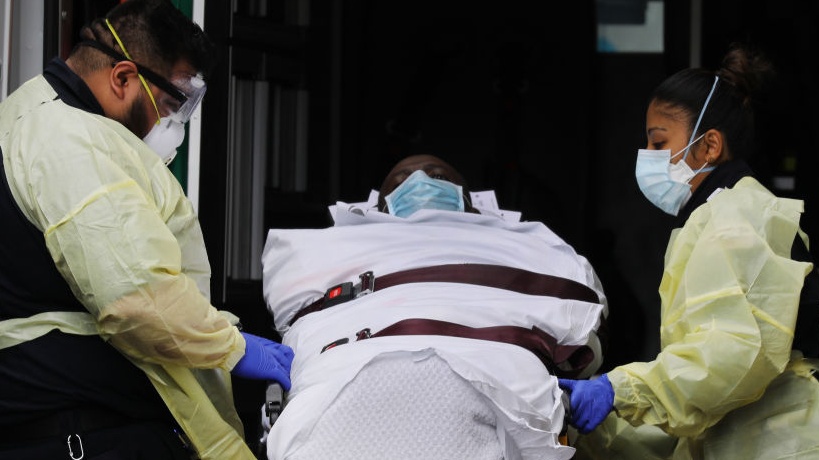Data from health departments around the country is now showing that the coronavirus pandemic is slamming Black communities particularly hard.
According to a ProPublica report released on Friday, Black communities struggling with widespread asthma, heart disease, hypertension and diabetes are suffering from an exorbitant number of hospitalizations and deaths due to the coronavirus.
The number of infections and deaths from the virus continues to multiply on a daily basis countrywide. In Milwaukee County, ProPublica found that Black people account for 81% of its 27 deaths and half of its 945 cases. Black people make up about 26% of the population in the county.
“What Black folks are accustomed to in Milwaukee and anywhere in the country, really, is pain not being acknowledged and constant inequities that happen in healthcare delivery,” Milwaukee Health Commissioner Jeanette Kowalik told ProPublica.
“We declared racism as a public health issue. It frames not only how we do our work but how transparent we are about how things are going. It impacts how we manage an outbreak,” Kowalik added.
Most states are refusing to break down coronavirus infection and death rates based on race, however, congressional Democrats are calling on Health and Human Services Secretary Alex Azar to release the breakdown of cases by race.
American cities with huge Black populations like Chicago, Charlotte, Detroit, New York City, New Orleans, Oakland and Houston are already seeing rapidly growing numbers of infections and deaths despite the continued lack of widespread testing.
On March 27, Springfield, Illinois, released a breakdown of cases by race with the state's 15% Black population making up 28% of confirmed cases. Contrastingly, Illinois' 77% white population makes up for 39% of confirmed cases.
A report from Michigan's Health Department revealed Black people account for 35% of the state's coronavirus cases and 40% of coronavirus-related deaths, USA Today reported.
Michigan has a population of about 10,000,000 people with Black people only representing about 14% of its residents.
In an interview with Essence, an attending physician at the Division of Community Pediatrics at Children’s Hospital of Philadelphia, Priscilla Michelle Mpasi, explained how white privilege and racial bias cause some Black coronavirus patients to be overlooked.
“Economic discrimination and discrimination in health care are apparent. African Americans are overrepresented in service industries that continue to be on call as much of the nation is sheltering in place,” Mpasi told Essence. “Many are the sole supporters of families without the flexibility to telecommute. Also at risk are our grandparents who’ve stepped in to help with childcare.”
“We know that white patients’ pain is interpreted far more often as true pain, as opposed to Black patients’ pain. We can surmise that that kind of discrimination may also be true with patients who present at a hospital with respiratory distress. Black patients’ distress may not be perceived as severe, causing delayed treatment,” Mpasi said.
ProPublica's report found that even without statistics broken down by race, it was obvious by the concentration of cases that Black communities were suffering greatly due to the coronavirus.
One of the key factors exacerbating the problem is that Black people work many of the jobs now deemed "essential" by the government, including health care, supermarkets, city transportation, retail and even Amazon distribution centers.
On Thursday morning, an ABC reporter in New York City took a photo of a packed train full of mostly Black people traveling to work in close quarters, highlighting the danger Black people face now that their work is deemed "essential."
This was the scene aboard a 2 train on Thursday. https://t.co/6i6XAdIFPe
— Eyewitness News (@ABC7NY) April 3, 2020
In Detroit, a Black bus driver died from the novel coronavirus on Wednesday after complaining two weeks prior about a passenger coughing openly near him. He said he was happy to continue performing his vital service in transporting essential workers across the city but said little was being done to protect people like him.
